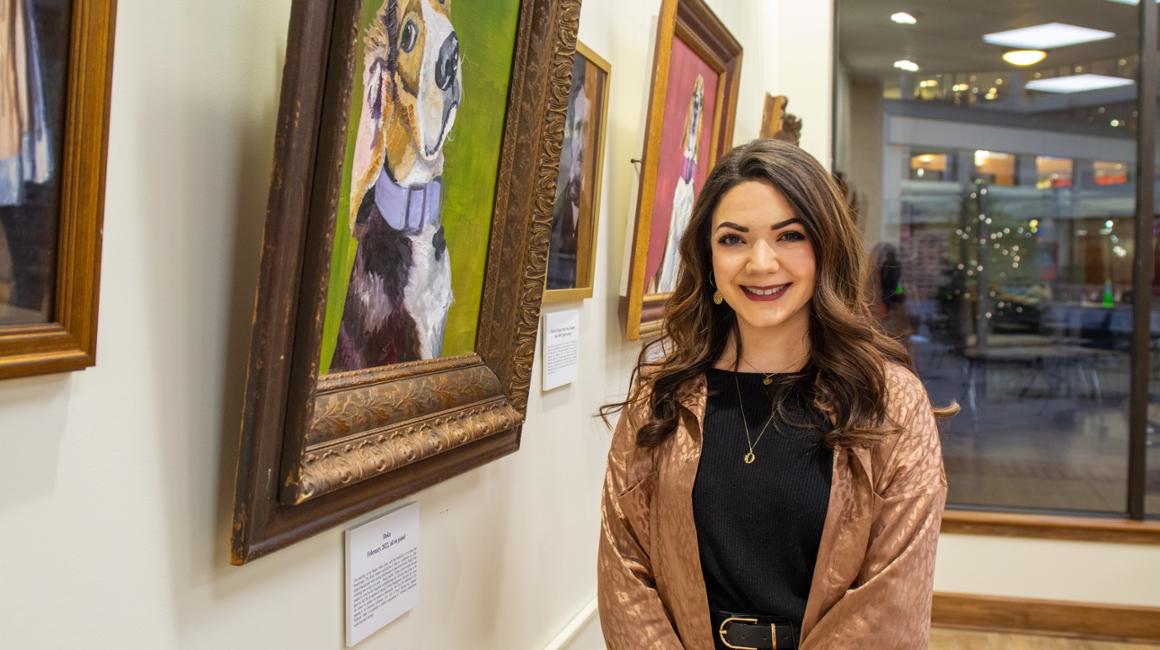Maralisa Marra has always been an artist. From childhood doodles and cartoon character sketches to watercolor painting and a tattoo artist apprenticeship, art has been her form of self-expression for years.
She even pursued art in college, completing bachelor’s degrees in English literature
and studio art at Fairmont State University near home in West Virginia. After graduation,
she debated a Master of Fine Arts in painting or a Master of Arts in English, ultimately
deciding to follow the path of several beloved undergraduate professors and enroll
in the English graduate program at Duquesne.
What she didn’t know at that time was she’d never have to narrow her ambitions, thanks
to Curating the Archives, a course that brought English and Public History students
together to study archival theory, research and curation. The interdisciplinary class
allowed Maralisa to connect to others in productive ways and explore all of her interests.
“We complemented each other,” said Maralisa. “The biggest lessons I learned from history
students were their enthusiasm, knowledge about exhibiting and museum etiquette topics
like ethical curation.”
As a final project, students were tasked with creating an exhibit. Maralisa considered
various topics and how she wanted to frame her project. Her first instinct as an English
student was to develop a literature-based exhibit. It wasn’t long before her thoughts
drifted toward a project from her undergraduate days where she created paintings of
her four beagles.
“I felt it was an unfinished project because I never got to write about it, and I
never got to figure out what I was doing with those dogs,” she said.
While her undergraduate experience allowed her to hone her art skills, Maralisa wanted
to continue the project to demonstrate the “why” behind her artwork and encourage
viewers to go beyond the surface and look for a fuller story.
As she painted, she drew inspiration from famous historical works by Van Gogh, Vermeer
and others. She started to mix historical and modern techniques to give the dogs texture
and juxtapose the past and present.
Framed in ornate gold, a painting featuring a beagle named Duke—a mirrored image of
Vermeer’s “Girl with a Pearl Earring”—allowed her to do just that.
Maralisa hopes that viewers will contemplate the type of art she’s trying to create.
“Historical references can be viewed as high art, but they also can be viewed as low
art, or light and fun,” she said. “And that's okay.”
Just as her beagle project evolved over the years and increased in depth and meaning,
Maralisa continues to evolve as a student—challenging her mind, realizing her strengths
and remaining open to opportunities.
She hopes to earn a doctorate and become a professor so she can help others and walk
alongside students as they reach their boldest goals. Her love of dogs will remain
part of her life as well—and not just through artwork. “Beagles are frequently involved
in animal testing because of their docile nature,” she said. “I’ll find an outlet
to help them.”
News Information
Published
April 15, 2024


